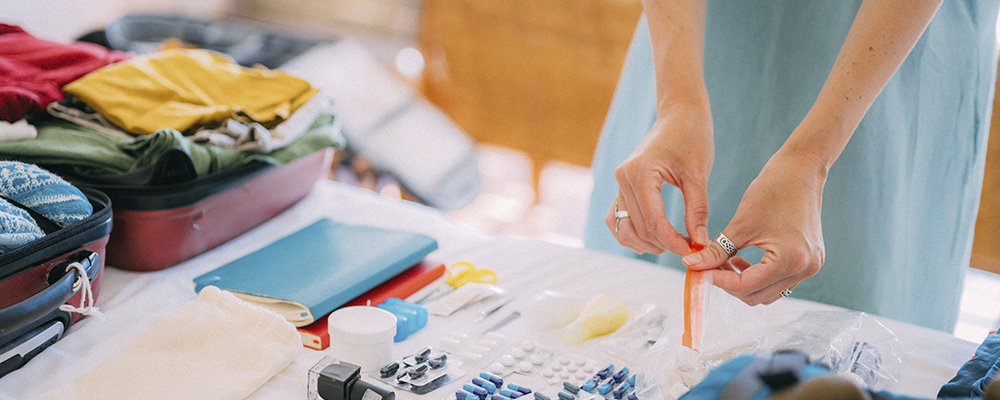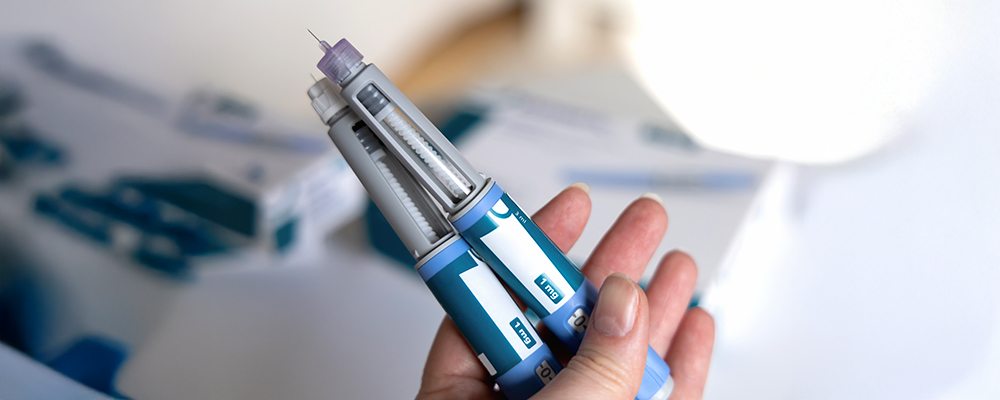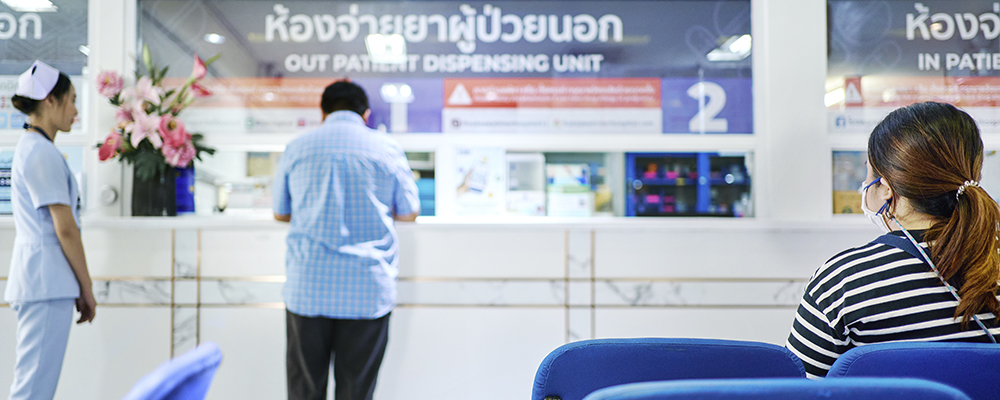
Travelling with medication
From EpiPens to blood pressure medication, pain relief, and the contraceptive pill, many of us need to take prescription medication with us when we travel overseas. When you’re planning your trip, it’s important to think about how you’ll manage your medication while you’re away.
Follow our travel tips for prescription medication, including how to pack and store them, the paperwork you'll need from your doctor, and double checking your medication is allowed in the countries you’re visiting (including any stopovers).
.jpg?h=400&w=1000&rev=9d08f6b0294c412f926465ee6ba7026e&hash=368E3EAD69349C63BEF7337E295EF74F)
Before you leave New Zealand
Planning an overseas holiday is an exciting experience but there can be a lot to think about. If you have medication to take on holiday, our advice is to start your planning early – a couple of months before departure if possible – and begin with a few simple steps.
- Visit your doctor – as well as a check-up to confirm you’re fit and healthy to travel, talk to your doctor about how much medication you’ll need to cover you for the whole trip. Getting a prescription filled overseas can be difficult.
- Check you have the correct paperwork – ask your doctor to provide you with a letter stating what medication you have been prescribed; how much you need to take and confirming that it is for your personal use. You may be asked for this during customs and security checks.
- Declare any pre-existing conditions, including any medication you’re taking, when you apply for travel insurance. If you get sick while you’re overseas, you’ll want to be sure you have the best possible cover in place. Find out more about why this is important.
Can you take medication overseas?
One of the most important things to do before you travel abroad is to check that your medication is compliant with the local laws of your destination. Each country has its own rules and regulations, and some medications available in New Zealand are illegal in popular overseas destinations such as Bali, the UAE, and Japan.

Some ADHD medication, for example, is illegal in Indonesia, even with a prescription. There may also be restrictions around over-the-counter medication. Japan does not allow common cold and flu remedies like Sudafed and Vicks Inhalers because of their ingredients, and you won’t be able to take nicotine gum into Singapore.
Commonly restricted medication include:
- Codeine and other opioid-based painkillers.
- Medicinal cannabis.
- Amphetamine drugs, such as medication for ADHD and sleep disorders.
- Cold and flu medication containing pseudoephedrine.
- Antidepressant and anti-anxiety medication (including diazepam).
Countries with strict medical regulations
Some of the countries with the strictest rules around prescription medication are:
- The United Arab Emirates – some arthritis medication, headache pills and other painkillers, are restricted.
- Japan – as well as strict laws around prescription and over-the-counter medication, there’s a limit on how many months’ supply you can bring in. You may need to apply for an import certificate (Yunyu Kakunin-sho).
- Singapore - you may need to apply for an approval to bring in medication for yourself or a family member such as a child. Chewing gum purchased overseas is not allowed to be brought into Singapore even if it is for medical or dental use but you can buy nicotine gum from local pharmacies once you arrive.
- Bali - check with the Indonesian embassy for a list of banned medication in Bali as there can be harsh penalties for bringing in a controlled substance even if you have a prescription.
Find out if your medication is legal by contacting the embassy or consulate in your destination country as well as any countries where you have a layover.
If your medication is not allowed in the country you’re visiting, ask your doctor if there’s an alternative they can prescribe.
Flying with medication
It’s a good idea to carry your prescription medication in your hand luggage so it’s easy to get to when you need to take it. It’s also one less thing to worry about should your luggage go missing or there’s a delay in collecting it. Make sure you pack enough medication for the whole journey.
When flying internationally it’s normal to be asked to remove your medication from your bag for a security or customs check. Be ready for this by following these steps:
- Put all your medication together in a clear resealable bag within your hand luggage
- Always carry your medication in its original packaging
- Have a copy of your prescription and a letter from your doctor with you to prove that the medication is yours and for your personal use.

What about limits on carrying liquids?
If you’re used to flying internationally, you’ll know that there’s a limit to how much liquid you can carry in your hand luggage. There’s an exception to this rule if you need to carry liquid medication including insulin or dialysis solution, but you’ll still need to meet these criteria:
- Medication in liquid form should be carried in containers that are no larger than 100ml. The total volume cannot exceed one litre or the number of 100ml containers that can be carried in a resealable bag measuring 20cm by 20cm.
- Medication should be carried in its original container along with the prescription. If this means that the container exceeds the 100ml limit, you should also have a letter from your doctor listing the medication, the volume you are required to take, and stating that the medication may be required during the flight or during transit between flights.
Medication in tablet form
Airlines also limit the amount of medication in the form of pills you can have in your carry-on luggage. The limit is usually 350g but, again, there are exceptions for prescription medication if:
- You have a letter from your doctor stating what the medication is, how much you need to take, and that you may need to take it during the flight; and
- You carry the medication in its original packaging along with a copy of your prescription.
Travelling with refrigerated medication
If your medication needs to be kept cool or refrigerated during your flight, you may also need to carry a thermos or a cooler bag and ice packs. Airlines will allow this but it’s best to come prepared with a letter from your doctor explaining what the medication is and why it needs to be stored in a thermal container. You could also talk to your pharmacist about the best way to transport medication that need to be refrigerated.
Flying with EpiPens and needles
You can carry syringes, needles, and EpiPens in your hand luggage, provided they are in their original packaging and correctly labelled. You should also have a letter from your doctor detailing what the medication is, the volume you will need to take, and that carrying needles or syringes is necessary.

Baby formula, breast milk and medication for children
Travelling with babies and young children takes a bit of organising but the good news is that you can carry as much food and drink, including infant formula and breast milk, as you’ll need for the flight, along with ice packs or cooler bags if you need them. Make sure you have enough to cover you during transit and in case of any delays.
The usual essentials like nappy cream, Pamol and teething gels are also allowed in your carry-on bag so young fliers (and their parents!) can travel as comfortably as possible.
What to do if you need more medication overseas
You may come across a few challenges trying to get your usual prescription medication while you’re in another country.

- Overseas pharmacies may not recognise your New Zealand script.
- Your medication may not be available in your destination country, or it could be illegal.
- There may be cultural restrictions, for example some doctors or pharmacists may refuse to supply contraceptives.
If possible, you should pack enough medication to last the whole trip while also ensuring the quantity doesn’t exceed the limit you’re legally allowed to bring into a country. Check these limits by contacting the local embassy.
If you need medication when you’re abroad follow these steps:
- Contact your doctor at home to see if they can send you a prescription.
- If your New Zealand script isn’t recognised, you may need to visit a local doctor or medical provider.
- If you’re unable to find a local medical provider or pharmacist the New Zealand embassy in your destination country may be able to help. What they can’t do is recommend that local providers write or fill a script for you.
- Ensure your medication is genuine and supplied by a qualified pharmacist. Counterfeit medication is common in some countries, and unregistered or unqualified sellers might not be too worried about your health needs.
You may be covered by travel insurance if your medication is lost, stolen or damaged during your trip, and you meet the conditions of cover. It’s important you check your policy wording to understand what you’re covered for.
Some insurers may only cover essential medication for conditions specified in the policy, excluding over-the-counter products that do not require a prescription. They may also require you to take reasonable care of your medication.
As you prepare for your journey, remember that managing your medication while traveling shouldn't hold you back from exploring the world. With careful planning and the right preparations, including securing comprehensive travel insurance, you can confidently enjoy your adventures, no matter your medical needs.
Always carry your essential documents, consult with healthcare professionals before you depart, and understand the regulations of your destination. Travel is for everyone, and with these steps, you can ensure your health and peace of mind. Safe travels!





